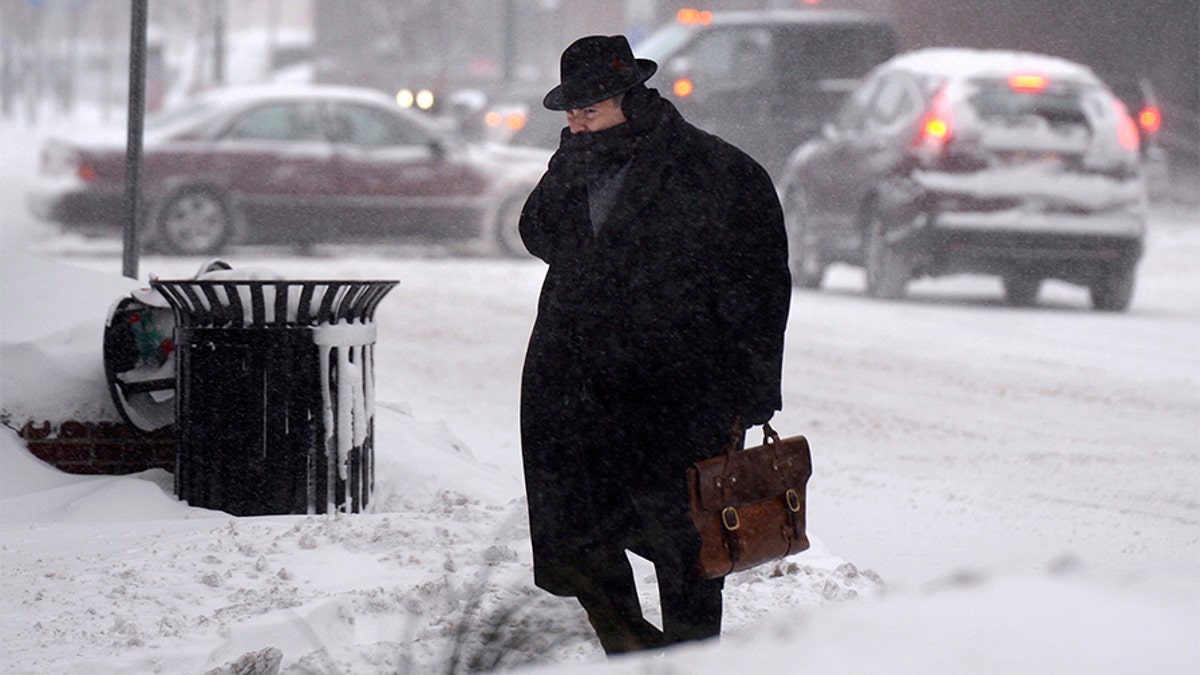
A man crosses street in downtown Syracuse, N.Y., Friday. Frigid temperatures, some that felt as cold as minus 30 degrees, moved across the East Coast on Friday as the region dug out from a massive winter storm. (Michael Greenlar/The Syracuse Newspapers via AP)
Much of the East Coast woke up to brutally frigid conditions Saturday as the region continued to dig out from a powerful blizzard that brought more than a foot of snow and strong winds.
The biting cold will last most of the weekend, prompting wind chill warnings for millions of people from Virginia to Vermont.
“It can be very dangerous,” said Dan Pydynowski, a meteorologist with private forecasting service AccuWeather, according to Reuters. “Any kind of exposed skin can freeze in a couple of minutes.”
Temperatures were in the single digits from Philadelphia to Boston on Saturday morning and expected to fall closer to zero Saturday night, with wind chills making it feel like minus 10 degrees to minus 20 degrees.
In Burlington, Vermont, the temperature was minus 1 Saturday morning, with a wind chill of minus 30. It was 8 degrees in Philadelphia and New York City, with wind chills ranging from minus 9 to minus 11.
Even more temperate locations won't escape the cold, with the mercury dipping into the single digits in Baltimore and Washington, D.C., during the weekend — about 20 degrees below normal for this time of year.
The blast of cold air, following a storm that dumped as much as 18 inches of snow in some places, could bring the feeling of real jaw-clenching temperatures to people living further north.
The National Weather Service said Friday that temperatures in the Berkshire mountains in western Massachusetts could seem like a frosty minus 35 degrees, parts of New Hampshire and Maine could experience minus 45, and Vermont's mountain regions could feel like minus 50 degrees.
"It's definitely cold and the type of bone-chilling cold that happens every few years," said Dan Hofmann, a meteorologist with the National Weather Service in Baltimore. He added that the last time such extreme cold occurred was in February 2015.
The weather service issued wind chill warnings for various days this weekend for parts of Vermont, New York, Virginia, West Virginia, Maryland, Maine and New Hampshire.
These locations, however, will have nothing on the White Mountains in New Hampshire. The Mount Washington Observatory, on its website , predicted the mountain's highest summits could see wind chills of minus 100 degrees into Saturday.
More seasonable weather is expected to return with temperatures in the high 30s and near 40s early next week.
The Associated Press contributed to this report.

